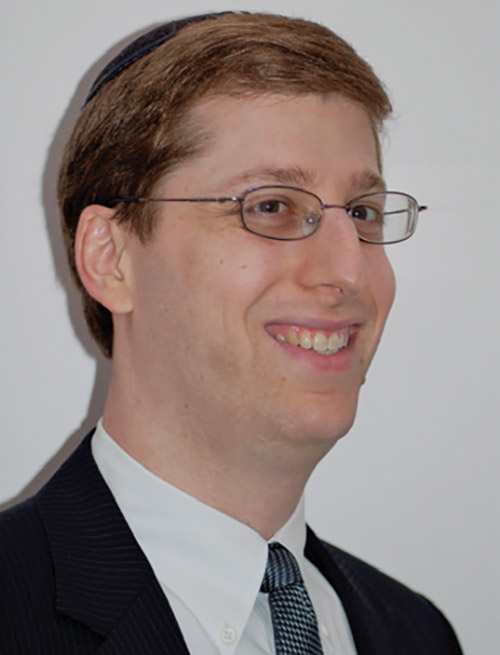
With Black Lives Matter (BLM), the Proud Boys, implicit bias and woke culture dominating so many headlines and public conversations, determining an authentic observant Jewish perspective on these issues is not just timely — it’s essential.
“Confronting Racism in the Orthodox Community” was the theme of the Orthodox Forum of Edison/Highland Park event on Motzei Shabbat, November 7. Rabbi Jeremy Wieder, professor of Talmud and Bible at Yeshiva University, presented a discussion about aspects of racism from a halachic perspective.
In his introduction of Rabbi Wieder, Highland Park Councilman Josh Fine noted that prominent rabbis spoke out against racism as early as the mid-20th century and “the topic still needs to be addressed today.”
The presentation began with Rabbi Wieder noting that the scope of discussion would be limited to the Modern Orthodox denomination of Orthodoxy as that is the environment that he is most familiar with. He acknowledged that some other groups may have varying viewpoints.
Rabbi Wieder stated that there are clear-cut instances of police violence against black people, but there are also instances that are not so clear. The community is split between those who support the BLM movement and those who reject it because of the intersectionality of anti-Israel positions. He encouraged Jews to educate themselves on the Black life experience, as we often are not aware of what the Black community sees on a daily basis. When African Americans hear members of the Jewish community denying violence and discrimination against the Black community, they often have the same visceral reactions as Jews who hear about Holocaust denial.
Historically, there is no evidence of racial discrimination in the Torah. The commandment to love a fellow human being as you love yourself is not based on color. However, some note that the disqualifications of a Kohen Gadol include someone with dark skin. In actuality, the exclusions also include abnormally light skin and myriad other reasons. The Jewish people of the Temple period looked mostly like the Sephardic people of Israel and would have been considered “people of color.” The restriction prohibited a Kohen Gadol from being an outlier of any group: height, weight or skin color.
Rabbi Wieder observed that the majority of Jews of color are converts or descendants of converts. We are commanded to treat the stranger/convert kindly, as we also were strangers in Egypt. Rashi is quoted in Parshat Yitro that notes the reflexive reaction Yitro had when Moshe described the death of the Egyptians following the Exodus. It is noted that one should be cautious about negative remarks about non-Jews in the presence of a convert—even if it has been 10 generations since their ancestor converted.
The first recorded instances of Black people specifically being sold as slaves is found in Islamic sources, not Jewish sources. While slavery is mentioned in the Torah, it deals with economic issues of class and/or misfortune and is not associated specifically as having to do with dark-skinned people. Some people justified slavery with sources stating that Noach cursed Cham’s sons by declaring that they and their descendants would be slaves. A direct contradiction to this is that the first king after the great flood was a son of Cham’s—clearly kingship and slavery are contradictions.
Stereotyping of any group is often based on erroneous sources. The United States established immigration quotas in the early 1920s based on alleged intelligence testing of immigrant groups. Southern and Eastern European groups (primarily Jews) tested lower and were severely limited in the numbers allowed to immigrate. Carl Brigham, head of the testing, later recanted the efficacy of the study as he acknowledged that education level and the ability to read English had greater influence on test performance than innate intelligence. The damage done by the study was incalculable, as a large number of people were unable to come to the United States to escape the Nazis.
Rabbi Wieder implored the audience to “not turn away from the suffering of others.” Failure to understand the suffering of others means we fail to recognize their humanity. Our lack of empathy and humility is what Moshe warned us about in Parshat Ekev.
In summary, Rabbi Wieder shared that he supports the fact that Black lives matter, but understands that parts of the BLM platform should be condemned.
The next Orthodox Forum presentation is scheduled for December 19, when “Managing Finance Throughout the Jewish Life Cycle” will be discussed. For more information about upcoming events go to: https://orthodoxjewishforum.dreamhosters.com/hpedison/ .









